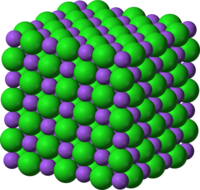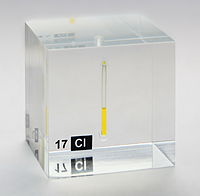
Structural alteration in hypochlorous acid modified antithrombin indicates generation of neo-epitopes.
Sign Up to like & getrecommendations! Published in 2020 at "Archives of biochemistry and biophysics"
DOI: 10.1016/j.abb.2020.108332
Abstract: Increased tendency of cancer patient to develop venous thromboembolism (VTE) is associated with high rates of mortality. Elevation of procoagulant proteins and down regulation of naturally occurring coagulation inhibitors appears to form the basis of… read more here.
Keywords: structural alteration; hocl modified; alteration hypochlorous; hocl ... See more keywords

Development of an ultrasensitive Ru(II) complex-based fluorescent probe with phenothiazine unit for selective detection HOCl and its application in water samples
Sign Up to like & getrecommendations! Published in 2021 at "Dyes and Pigments"
DOI: 10.1016/j.dyepig.2021.109179
Abstract: Abstract A near-infrared probe Ru-1 with a phenothiazine derivative moiety as a responsive unit was designed to sensitively and selectively recognize HOCl in pure PBS solution. Upon addition of HOCl to a PBS solution of… read more here.
Keywords: water; hocl; unit; phenothiazine ... See more keywords

Near infrared fluorescent probe for in vivo bioimaging of endogenous hypochlorous acid
Sign Up to like & getrecommendations! Published in 2021 at "Dyes and Pigments"
DOI: 10.1016/j.dyepig.2021.109218
Abstract: Abstract Accurate detection of HOCl with high sensitivity and high selectivity is essential to elucidate its functions in health or disease states. Herein we propose a new fluorescence HOCl probe (NFL-S) by combining reasonable design… read more here.
Keywords: infrared fluorescent; fluorescent probe; near infrared; hocl ... See more keywords

Real-time tracking and dual-mode imaging of hypochlorous acid in vivo by a small-sized fluorescence probe
Sign Up to like & getrecommendations! Published in 2021 at "Dyes and Pigments"
DOI: 10.1016/j.dyepig.2021.109219
Abstract: Abstract Endogenous hypochlorous acid (HOCl), an ROS of particular interest, is like a double-edged sword, which has dual influence on both the maintenance of normal physiological functions and the occurrence of many diseases. Methods to… read more here.
Keywords: real time; hocl; fluorescence; probe ... See more keywords

Role of thiocyanate in the repair of myeloperoxidase-derived thiol oxidation during chronic inflammation
Sign Up to like & getrecommendations! Published in 2018 at "Free Radical Biology and Medicine"
DOI: 10.1016/j.freeradbiomed.2018.10.249
Abstract: Myeloperoxidase is a vital component of the human immune system, producing the potent oxidant hypochlorous acid (HOCl), to kill bacteria and other invading pathogens. However, an overproduction of HOCl causes oxidative stress and damage to… read more here.
Keywords: oxidation; chronic inflammation; scn; hocl ... See more keywords

Thiol oxidation and di-tyrosine formation in human plasma proteins induced by inflammatory concentrations of hypochlorous acid.
Sign Up to like & getrecommendations! Published in 2017 at "Journal of proteomics"
DOI: 10.1016/j.jprot.2016.10.008
Abstract: In this study, we assessed the oxidative damage occurring in plasma proteins when human blood was exposed to inflammatory concentrations of hypochlorous acid (HOCl). We used specific thiol labelling and Western blot analyses to determine… read more here.
Keywords: protein; oxidation; protein aggregates; hocl ... See more keywords

Monitoring Neuroinflammation with A HOCl-Activatable and Blood-Brain Barrier Permeable Upconversion Nanoprobe.
Sign Up to like & getrecommendations! Published in 2020 at "Analytical chemistry"
DOI: 10.1021/acs.analchem.0c00526
Abstract: A reliable tool for real-time tracking the neuroinflammatory progress is highly desired for interpretation and treatment of neurological disorders. Herein, a blood-brain barrier (BBB) permeable and HOCl-activatable upconversion (UC) nanoprobe with NIR emission was designed… read more here.
Keywords: blood brain; hocl; brain barrier; brain ... See more keywords

Thallium(I) Oxidation by Permanganate and Chlorine: Kinetics and Manganese Dioxide Catalysis.
Sign Up to like & getrecommendations! Published in 2020 at "Environmental science & technology"
DOI: 10.1021/acs.est.0c00068
Abstract: The oxidation of the toxic heavy metal thallium(I) (Tl(I)) is an efficient way to enhance Tl removal from water and wastewater. However, few studies have focused on the kinetics of Tl(I) oxidation in water, especially… read more here.
Keywords: oxidation; catalysis; hocl; chlorine ... See more keywords

A fast-response fluorescent probe for hypochlorous acid detection and its application in exogenous and endogenous HOCl imaging of living cells.
Sign Up to like & getrecommendations! Published in 2017 at "Chemical communications"
DOI: 10.1039/c7cc07373a
Abstract: A facile fluorescent probe (NBD-DOP) has been developed to detect hypochlorous acid (HOCl) in this study. The probe consists of a NBD fluorophore and a dopamine moiety that reacts with HOCl specifically. The dopamine group… read more here.
Keywords: fluorescent probe; probe; hocl; exogenous endogenous ... See more keywords

Ultra-sensitive fluorescent probes for hypochlorite acid detection and exogenous/endogenous imaging of living cells.
Sign Up to like & getrecommendations! Published in 2018 at "Chemical communications"
DOI: 10.1039/c8cc03963a
Abstract: Two fluorescent probes (Naph-1 and Naph-2), which can be prepared via a facile process, have been developed to detect hypochlorite acid (HOCl). The N,N-dimethyl thiocarbamate group quenches the fluorescence of the probes through intramolecular charge… read more here.
Keywords: detection; hypochlorite acid; hocl; living cells ... See more keywords

Engineering dithiobenzoic acid lactone-decorated Si-rhodamine as a highly selective near-infrared HOCl fluorescent probe for imaging drug-induced acute nephrotoxicity.
Sign Up to like & getrecommendations! Published in 2019 at "Chemical communications"
DOI: 10.1039/c9cc04736k
Abstract: A highly selective lysosome-targeting NIR fluorescent probe (Lyso-SiR-2S) for HOCl was constructed based on Si-rhodamine B spirodithiolactone. This probe was very effectively employed to sense HOCl produced in various living cells and to visualize fluctuations… read more here.
Keywords: fluorescent probe; highly selective; probe; hocl ... See more keywords